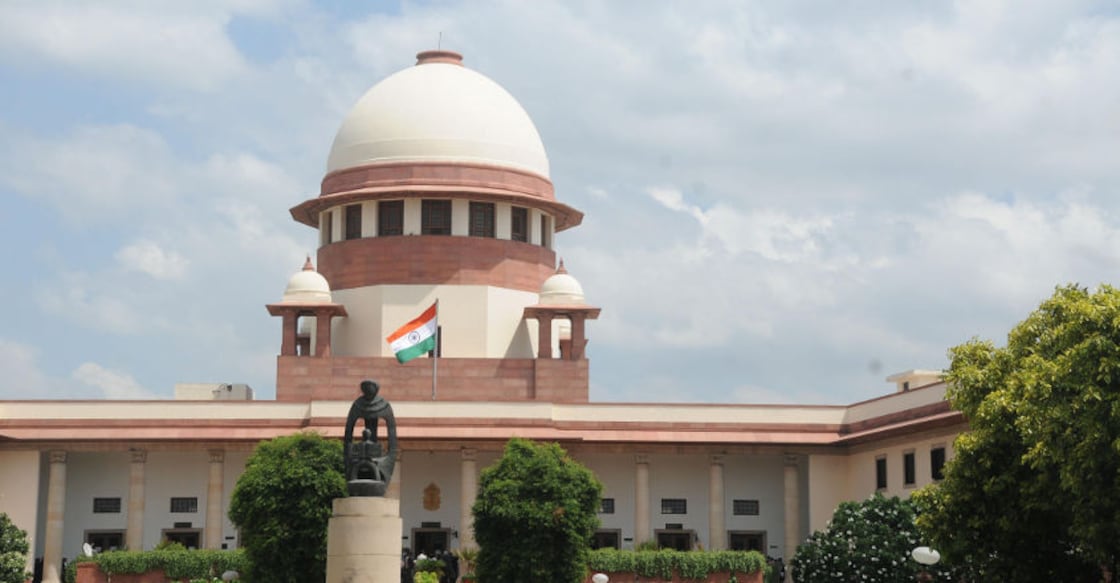SC seeks Centre's response on pleas challenging validity of amendments to UAPA

Mail This Article
New Delhi: The Supreme Court on Friday sought a response from the Centre on petitions challenging the constitutional validity of the amendments made in the UAPA.
The petitions challenges the changes to the Unlawful Activities (Prevention) Act on various grounds, including that these infringed upon fundamental rights of citizens and empowered agencies to declare a person a terrorist.
A bench comprising Chief Justice Ranjan Gogoi and Justice Ashok Bhushan issued notices to the central government on petitions filed by Sajal Awasthi and an NGO, Association for Protection of Civil Rights (APCR).
The bill for amendments to the UAPA was passed by Parliament on August 2 and it received the President's assent on August 9. The amended Act allows the Centre to designate individuals as terrorists and seize their properties.
The Unlawful Activities (Prevention) Amendment Act, 2019 also provides for putting a travel ban on such individuals once they are declared as terrorists.
The petition filed by APCR said the amendments infringed upon the fundamental right to reputation and dignity under Article 21 of the Constitution, without substantive and procedural due process.
"Notifying an individual as a terrorist without giving him an opportunity of being heard violates the individual's right to reputation and dignity, which is a facet of right to life and personal liberty under Article 21 of the Constitution," the petition said.
It added that condemning a person unheard on a mere belief of the government was unreasonable, unjust, unfair, excessive, disproportionate and violated the due process.
"A person who is designated a terrorist, even if he is de-notified subsequently, faces a lifelong stigma and this tarnishes his reputation for life," the plea said, adding that Section 35 of the amended Act did not mention when a person could be designated as a terrorist.
"Whether on a mere registration of an FIR or upon conviction in a terrorism related case, designating a person as a terrorist on a mere belief of the government is arbitrary and excessive. A person is never informed of the grounds of his notification, so the remedy of challenging his notification under section 36, as provided for in the Act, is rendered practically otiose," the petition said.
The petition has contended that the amendments were grossly disproportionate and had no rational nexus between the objects and means adopted to meet them.
"It is unclear as to what legitimate aim does the state seek to achieve by declaring a person as a terrorist without even providing an efficacious remedy to challenge his notification," it said.
The petition has sought a direction from the court declaring sections 35 and 36 of the Unlawful Activities (Prevention) Amendment Act as unconstitutional and void as those violated the fundamental rights of individuals.
The Union Home Ministry had some of India's 'Most Wanted', namely Masood Azhar, Hafiz Saeed, Dawood Ibrahim and Zaki-Ur-Rehman Lakvi, designated as terrorists for their involvement in various terrorist attacks after the amendment. They say the new changes are part of an effort to intensify India's fight against terror arising out of international borders.

Masood Azhar
Masood Azhar is the founder, chief and key leader of terror outfit Jaiesh-e-Mohammad. He was designated as a global terrorist by the United Nations earlier this year.
Jaiesh-e-Mohammad is responsible for a lot of violence and terror activities in the Indian subcontinent. They regularly undertake recruitment drives for terrorist activities and urge people to promote terrorism and support their actions against India.
They were behind various terrorist attacks in India including the terror attack on the Jammu and Kashmir State Legislative Assembly complex in Srinagar in 2001, the terror attack on the Parliament of India in 2001, the attack at Pathankot in Punjab, terror attacks on BSF camp at Humhama, Srinagar, and most recently, the Pulwama terror attack on 14th February, 2019 wherein 40 security force personnel were killed.
Hafiz Saeed and Zaki-ur-Rehman Lakhvi
Hafiz Muhammad Saeed is the founder, chief and key leader of proscribed terrorist organisation Lashkar-e-Taiba. Saeed too has been designated as a global terrorist by the United Nations. He was responsible for the attack on Red Fort in 2000, the Rampur attack in 2008, the 26/11 Mumbai attack, and attack on BSF convoy at Udhampur in Jammu and Kashmir in 2015.
Saeed was assisted by Zaki-ur-Rehman Lakhvi, the chief operational commander of Lashkar-e-Taiba (LeT) and is also one of its founder members.
Dawood Ibrahim
Dawood Ibrahim Kaskar runs an international underworld crime syndicate and is involved in perpetrating acts of terror, promoting religious fundamentalism, terror financing, arms smuggling, circulation of counterfeit currency, money laundering, narcotics, extortion and benami real estate business in India and abroad and is also involved in assassination attempts on prominent personalities to create social disharmony and terrorise common man.
He is also designated as a Global terrorist by the United Nations since 2003.
The Islamic State of Iraq and Levant and Al-Qaeda Sanction Committee of United Nations Security Council has also listed Dawood for participating in the activities of Osama bin Laden, Al-Qaeda and the Taliban.
He is responsible for a series of bomb blasts in Mumbai on March 1993, which resulted in deaths of 257 persons and injured over 1000 persons apart from the destruction of properties on a massive scale.
(With inputs from PTI)

